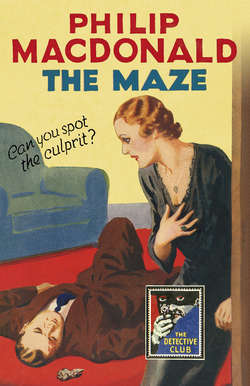Читать книгу The Maze - Julian Symons - Страница 9
ОглавлениеSCOTLAND YARD,
14th July, 193–
MY DEAR GETHRYN,
It is with a good deal of diffidence that I approach you, remembering our conversation before you left England for this holiday. You said that upon no account were you going to ‘inaugurate, contemplate or elucidate crime or any minor or major misdemeanours!’ You also said, I believe, that you were not going to read any English newspapers while you were out of England. Be that as it may, I am worrying you. I would like you to understand, however, that the fact that I am worrying you is due only partly to my own inclination. Charters himself, Pike and Jordan—and, this morning, even Bunter—have all brought pressure to bear upon me. I suggested to Charters that if he wanted to worry you he should do it himself. But he wasn’t having any. And so, as usual, I’m left to do the dirty work. It may be very pleasant to be the First Commissioner of Police. It’s certainly very pleasant to be an ordinary Police Constable. But who would be an Assistant Commissioner?
I feel that I’m taking an unconscionably long time to get down to brass tacks. That’s probably due to the fact that I’m dictating this letter and also to the fact that I’m nervous about its reception when I remember my promise to you of a few weeks back. However, here goes:
Since you’ve been away there has happened—near Kensington Gore of all unlikely places!—a case which is the most extraordinary within my fairly long experience and also, I am told, within the thirty-five years’ experience of old Jordan. Certainly in all my knowledge—official and private, actual and literary—there has never been anything quite like it.
In Kensington, on the night of the 11-12th July, a man was killed. He met his death, abiding by all the canons of the best ‘mystery fiction’ in his study. It is certain beyond all possibility of doubt that he was murdered. It also seems certain beyond all possibility of doubt that he met his death at the hands of a person who was, for the time being at least, resident beneath his roof. There were, besides the murdered man, ten people sleeping in the house on the night of his death. One of them must surely have done it! But it has proved quite impossible for us to fix upon this one person. This doesn’t look good for the police. Moreover, it is intensely annoying to any person of intelligence. Having been with the case since it began a few weeks ago—which seem like ten years—I can most earnestly vouch for this. I felt—and still feel—as I used to feel as a child when I went to Maskelyne and Cook’s. I can still feel the appalling, stifling, impotent irritation of the Irish peasant priest faced with the question: ‘If God is omnipotent, can He make a stone so heavy that He can’t lift it?’
What we want you to do is to look at the papers we have on the case and just see if you can spot anything which we may have overlooked. I think it is hopeless. But I also think—knowing you as I do—that the chance is worth taking even at the risk of drawing down upon myself a sulphurous rebuke.
I had originally intended to write this letter and ask your permission to send you the papers (verbatim report of inquest, etc.). On maturer thought, however, I have decided to enclose copies of these herewith, for it has struck me that your answer to a request as to whether one might send papers would be useless, whereas your reaction to a bundle of papers might well be one of sufficient curiosity at least to make you read them through. And if you do read them through I am convinced that the sheer complexity of an apparently simple business will decoy you into spending thought upon it—and that, after all, is what we really want.
With all my respects to your wife and admiration to your small son,
Yours very sincerely,
E. LUCAS
